Emphasizing ‘joy’ and ‘hope’ Northeastern community celebrates life and legacy of Rev. Martin Luther King Jr.
President Aoun gave remarks following a conversation with Massachusetts Attorney General Andrea Campbell on building equitable communities to continue the civil rights leader’s legacy.
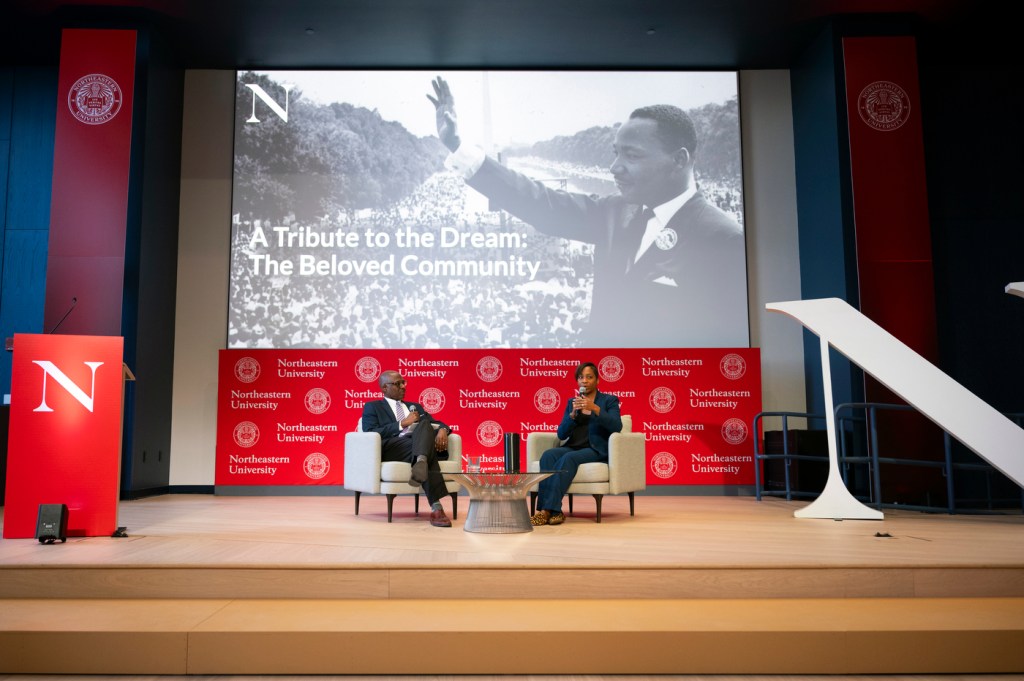
This year’s theme of Northeastern University’s annual celebration of the legacy of the Rev. Martin Luther King Jr. was “The Beloved Community.” As such, speakers for the event, “A Tribute to the Dream,” placed a shared emphasis on the importance of community and equity in carrying forward the civil rights leader’s mission.
In his remarks during the event, Northeastern President Joseph E. Aoun extolled the power of education in that fight.
“Education has been the greatest platform for social mobility,” he said. “I want to thank the numerous colleagues who have been working for justice here, and thank the community as a whole for showing that commitment on a daily basis.”
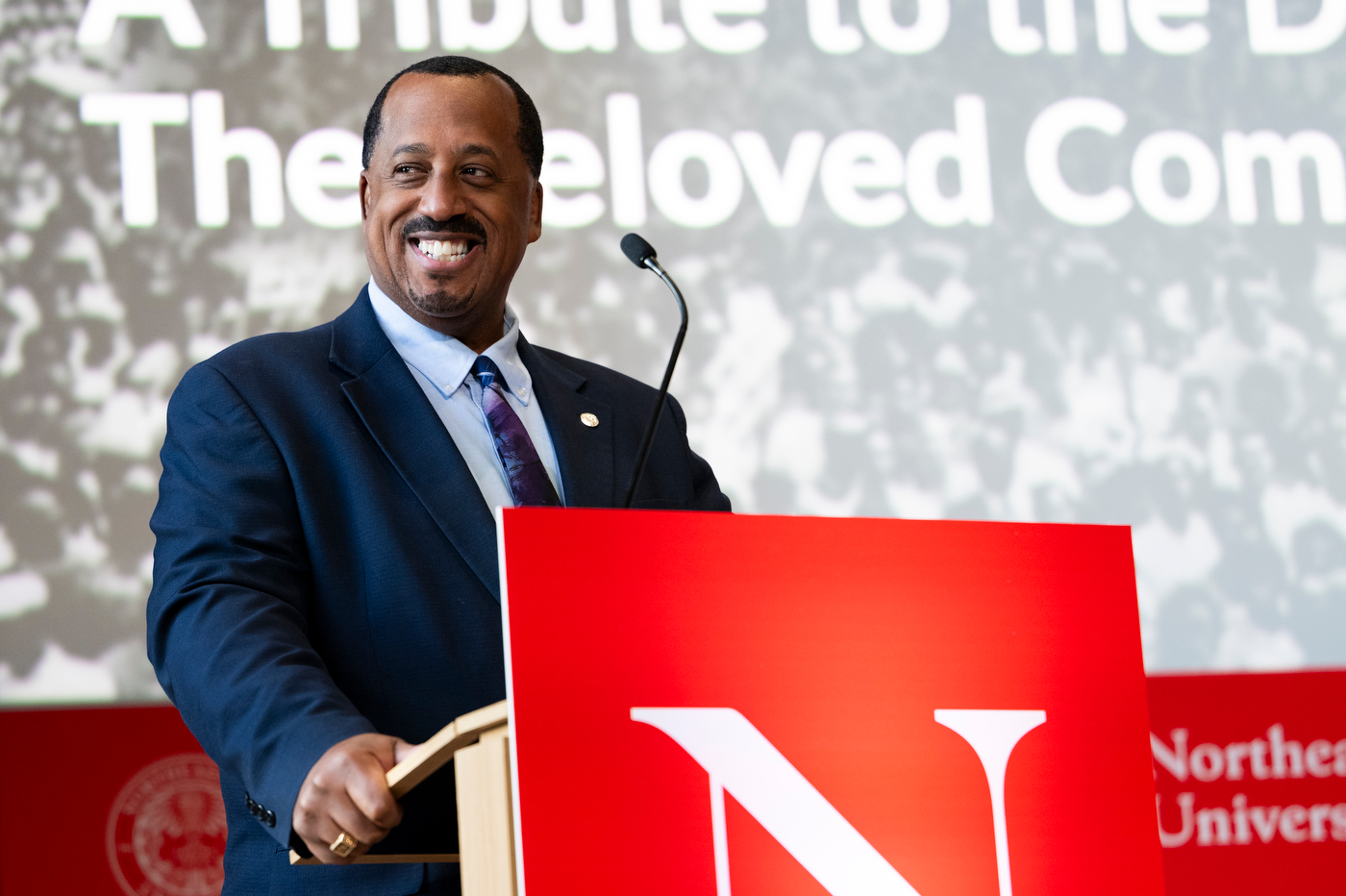
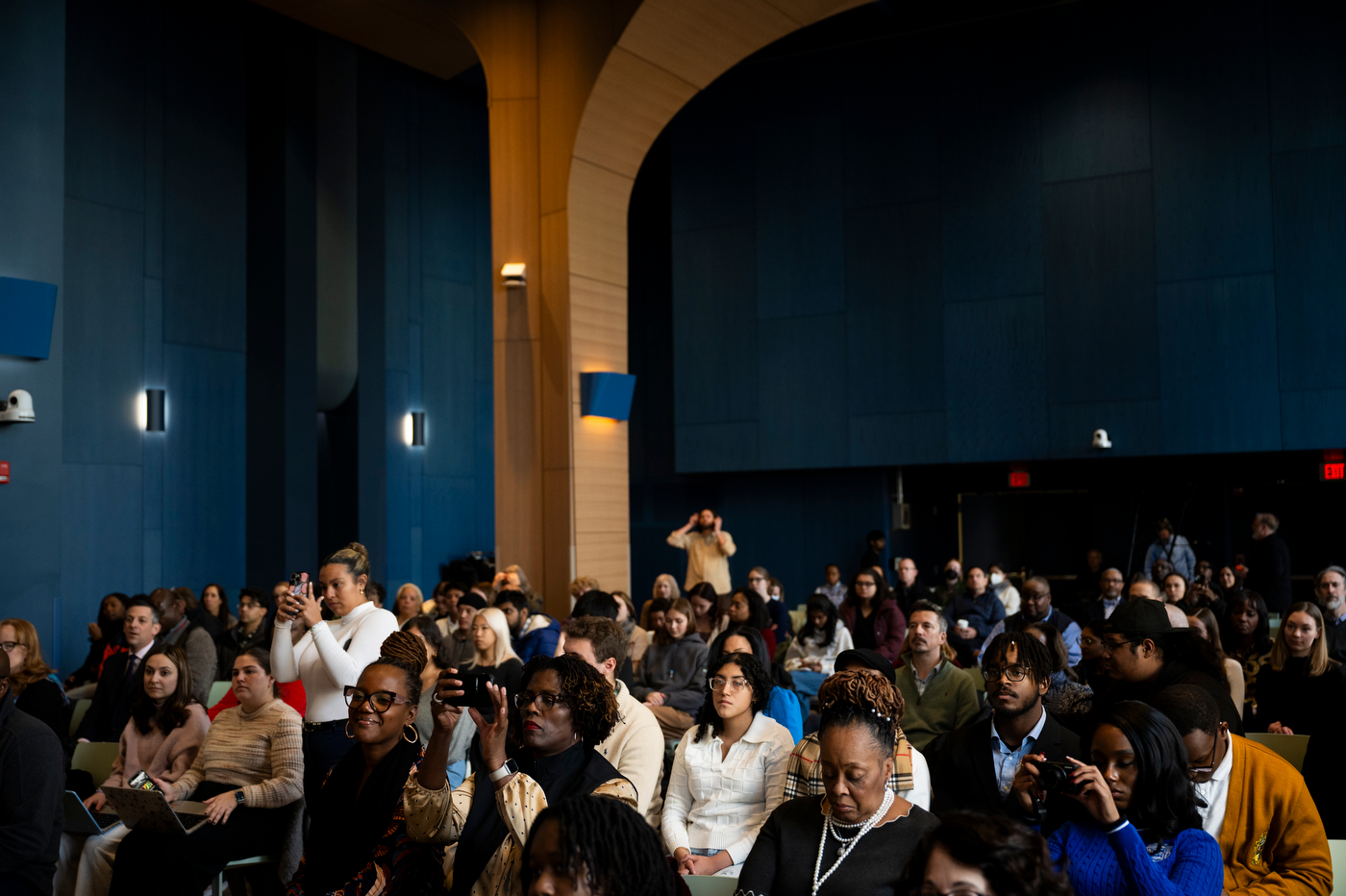
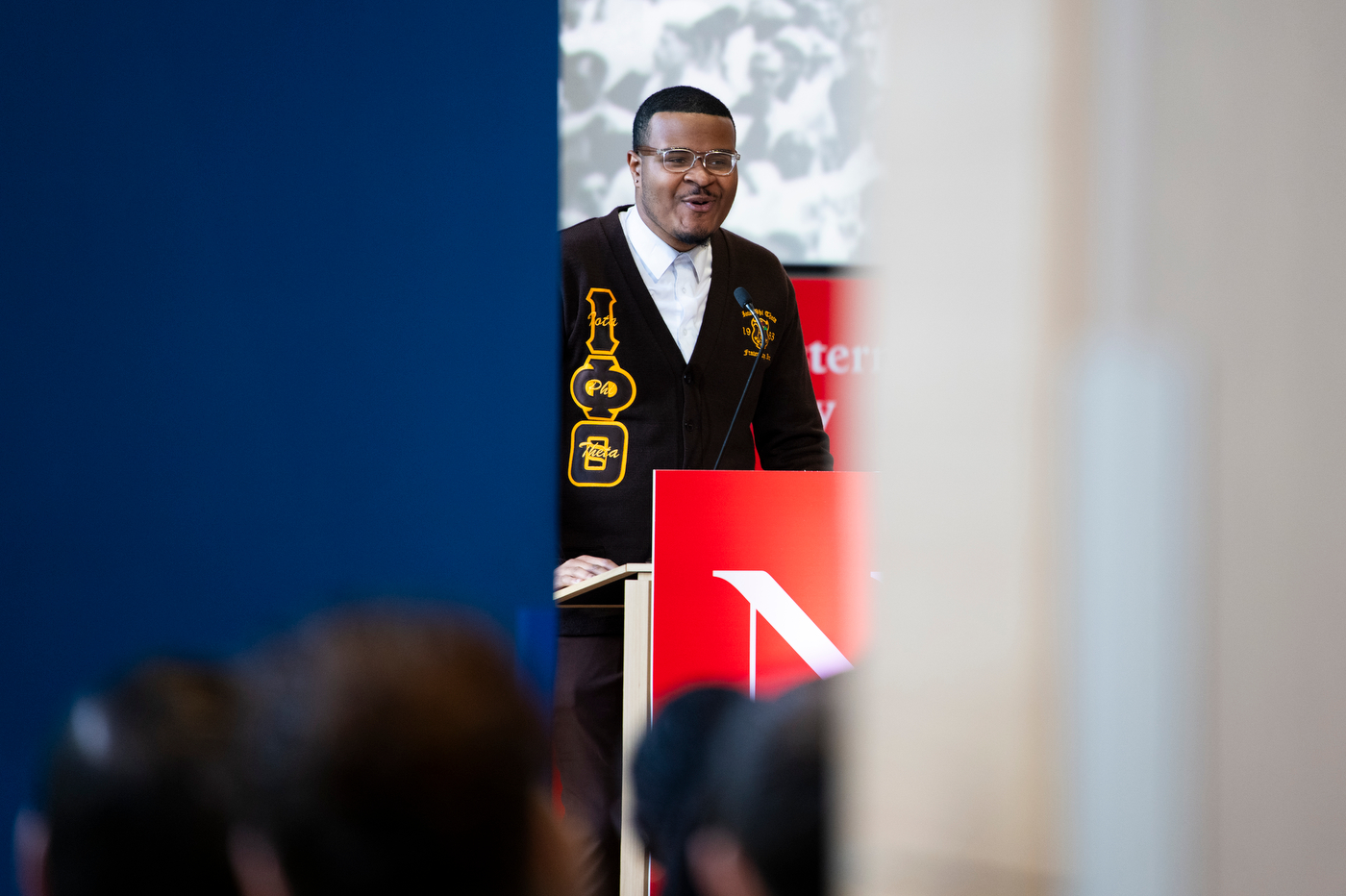
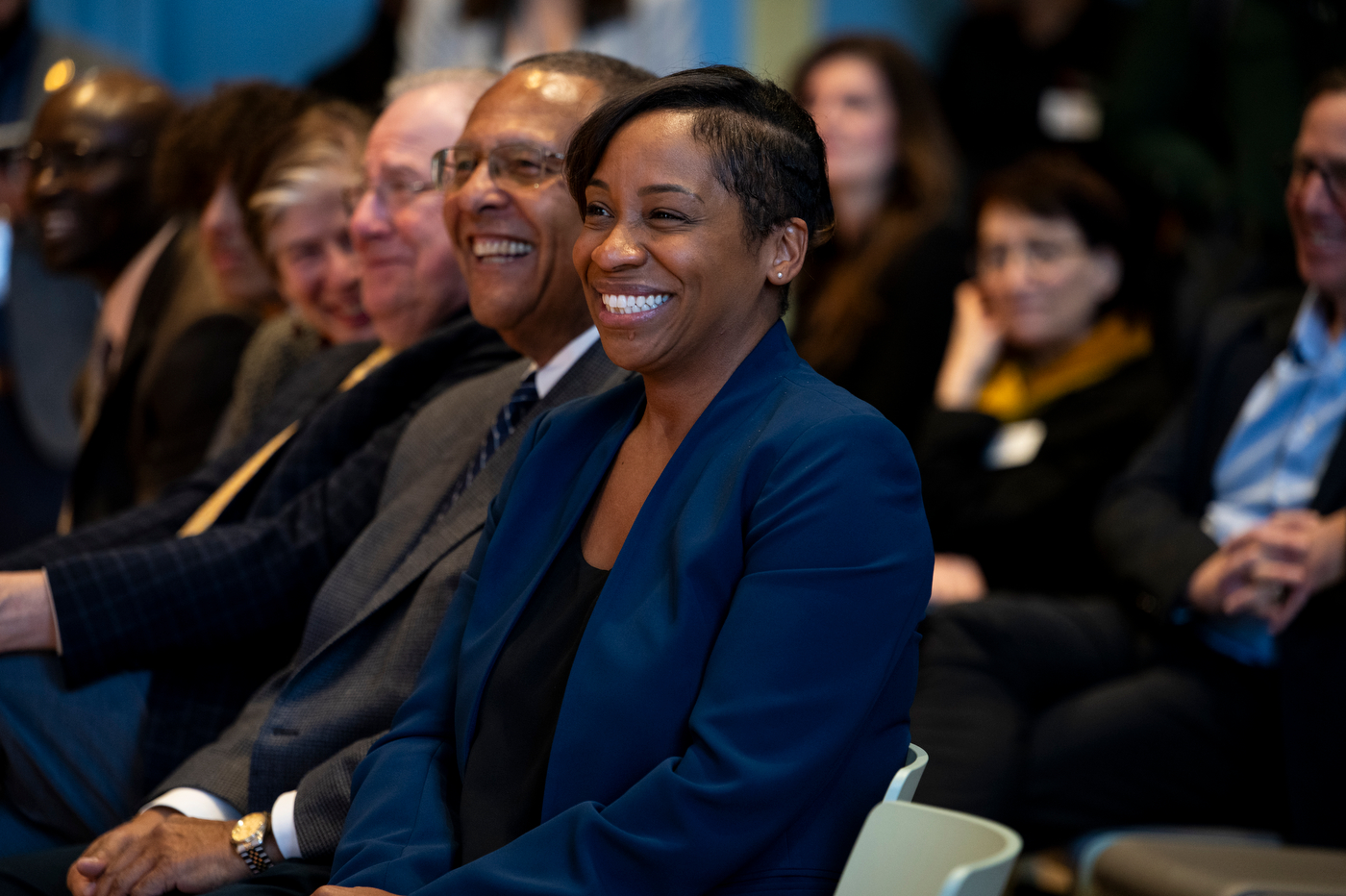
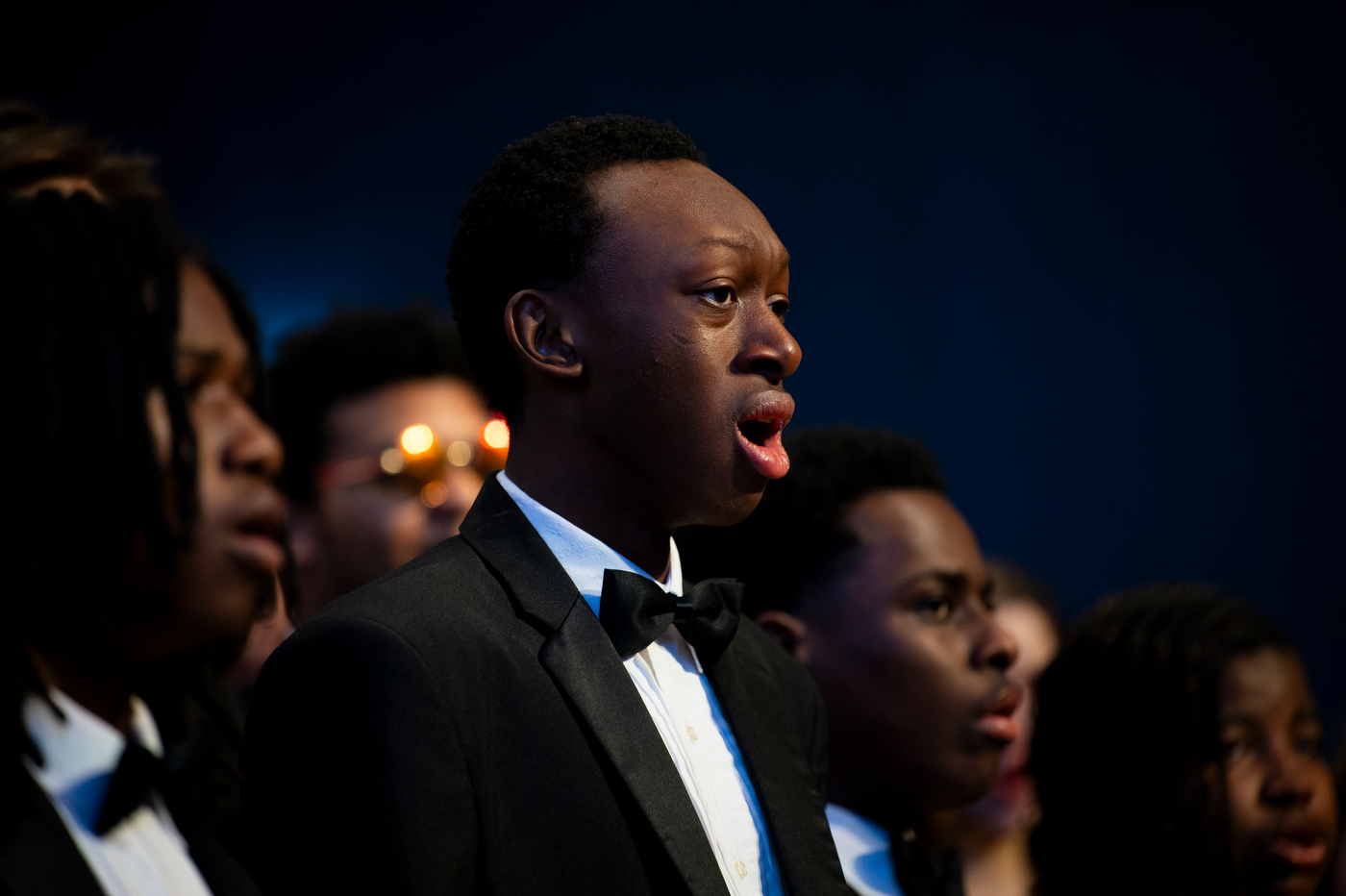
Held in the newly-renovated Curry Student Center ballroom on Northeastern’s Boston campus and streamed live across the university’s global campus network, “A Tribute to the Dream” featured a conversation between Massachusetts Attorney General Andrea Campbell and Dan Lothian, a professor of the practice in Northeastern’s School of Journalism.
Campbell, who was born and raised in the Roxbury and South End neighborhoods near the Boston campus, served three terms as a Boston city councillor before her 2022 election as attorney general. She was the first Black woman elected to statewide office in Massachusetts.
“It feels amazing to be sitting here, because I grew up right down the street,” Campbell said. “This was my world, and I always took pride in being a part of these communities.”
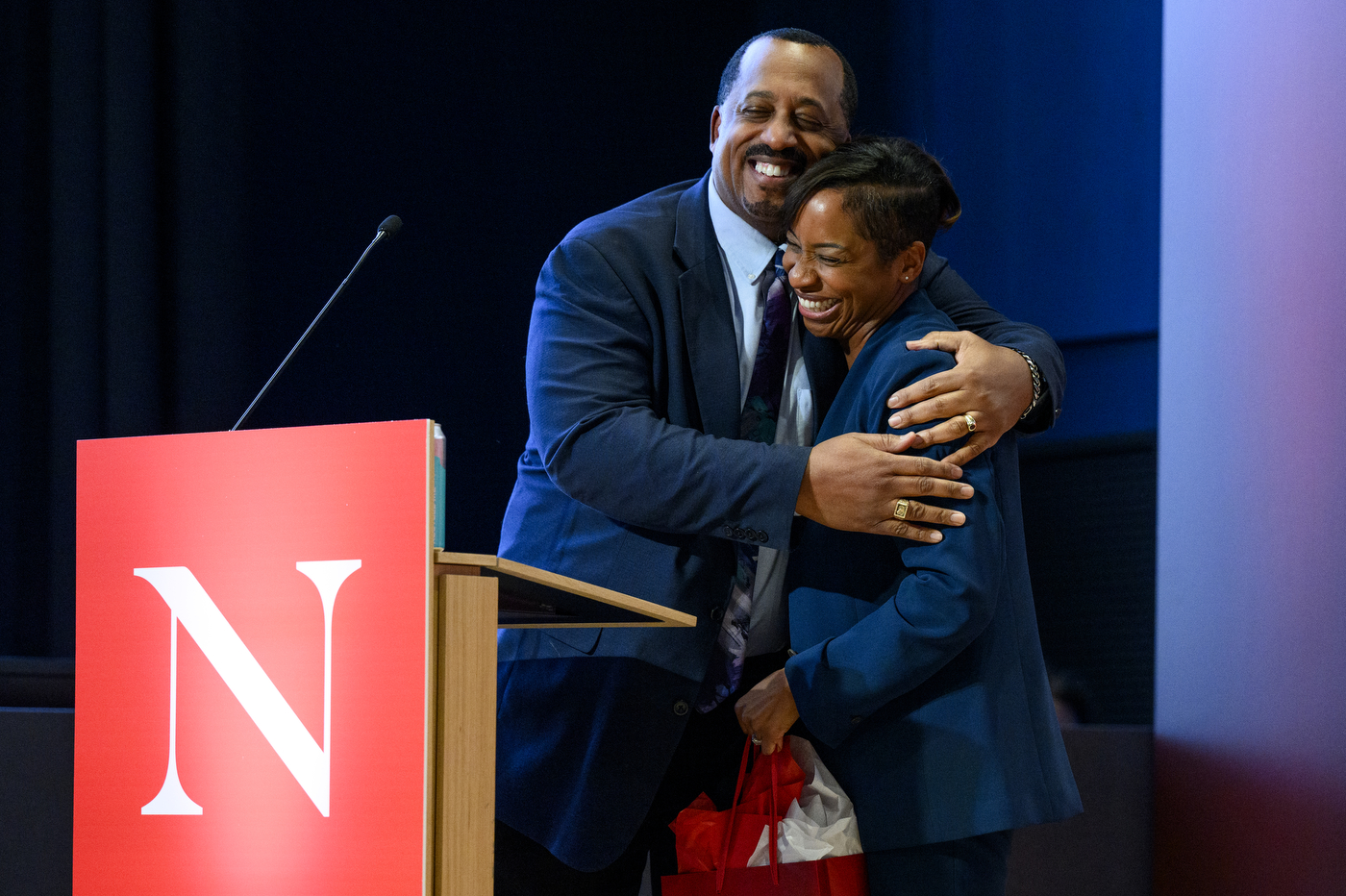
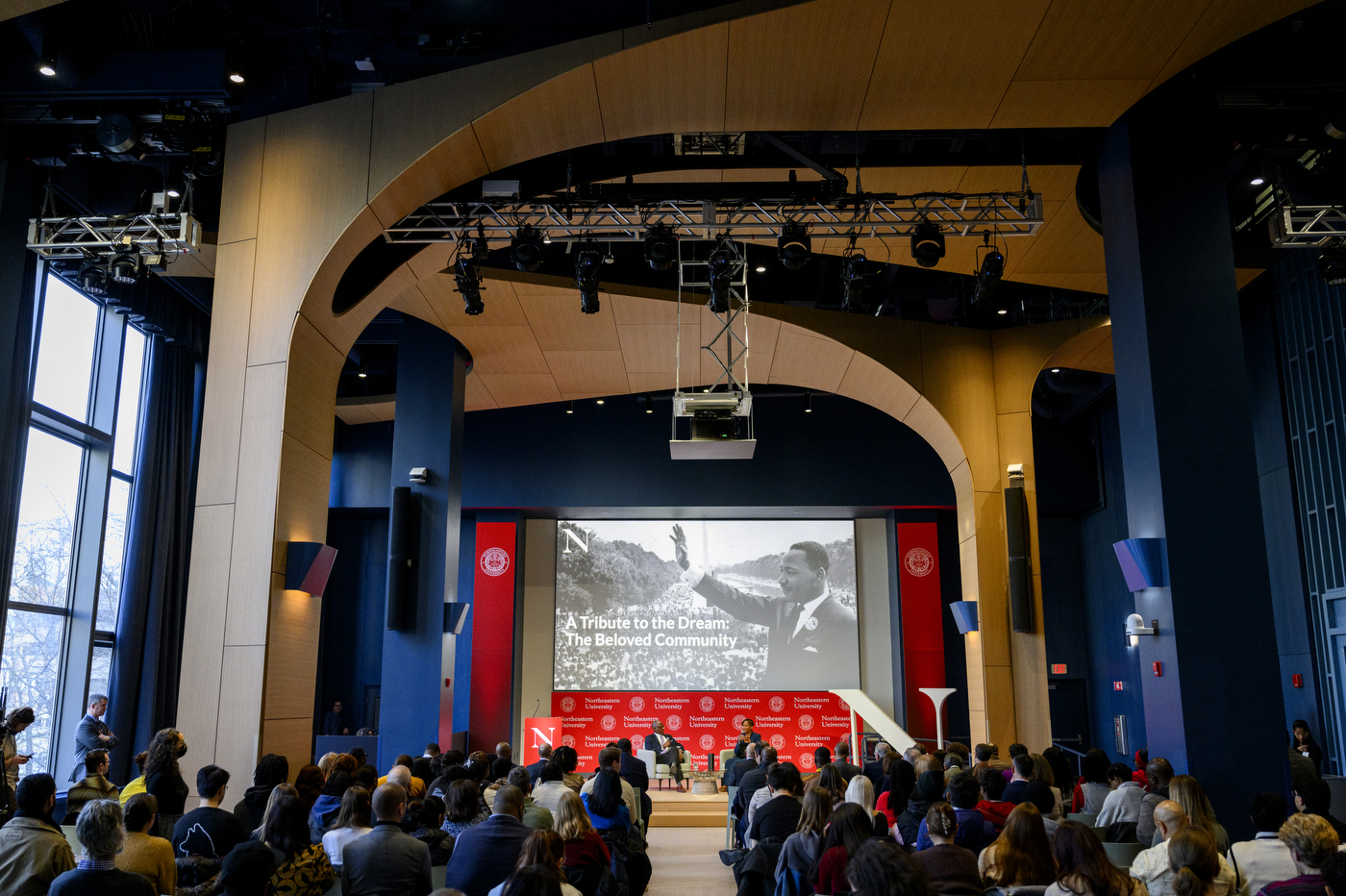
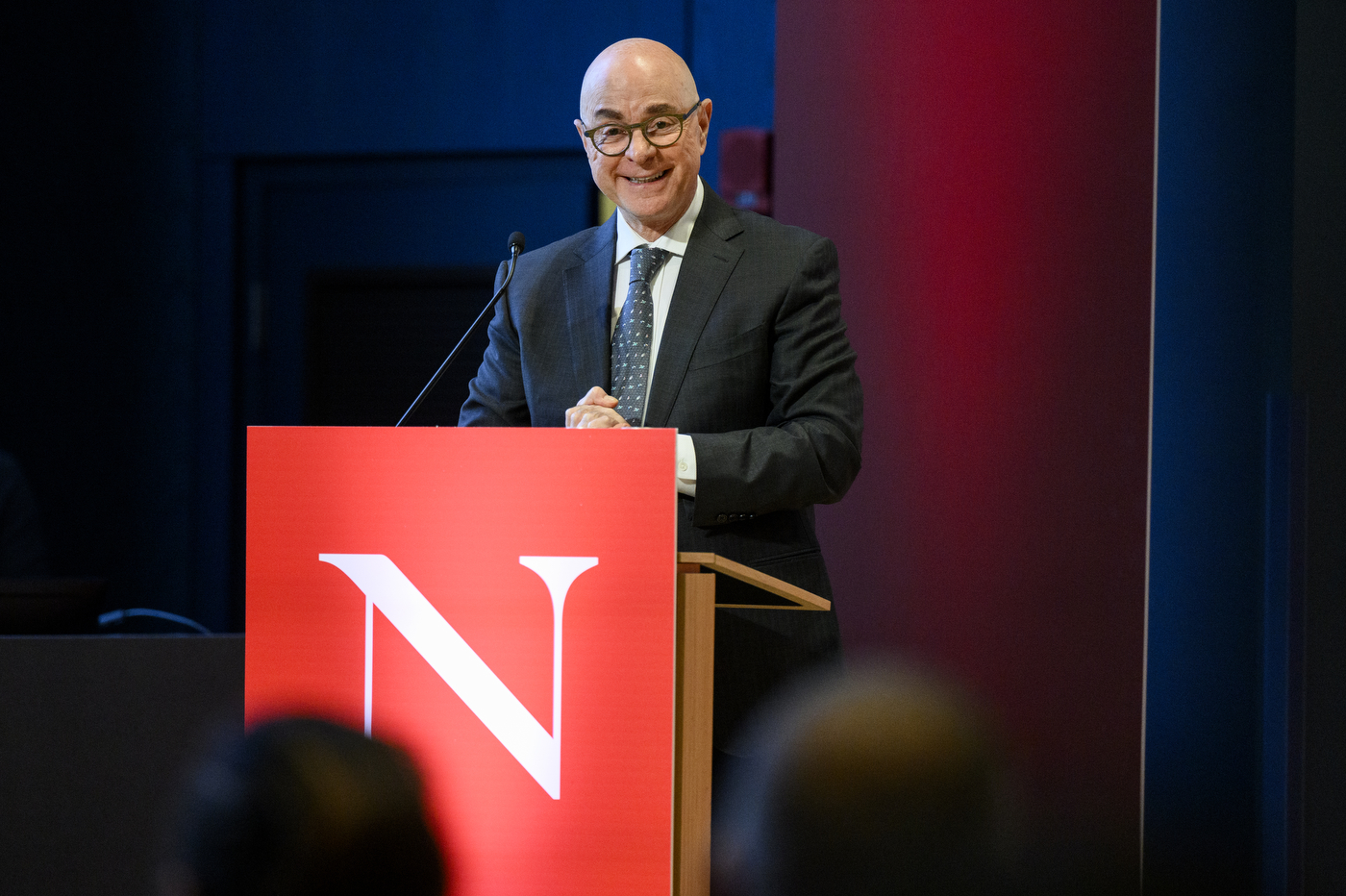
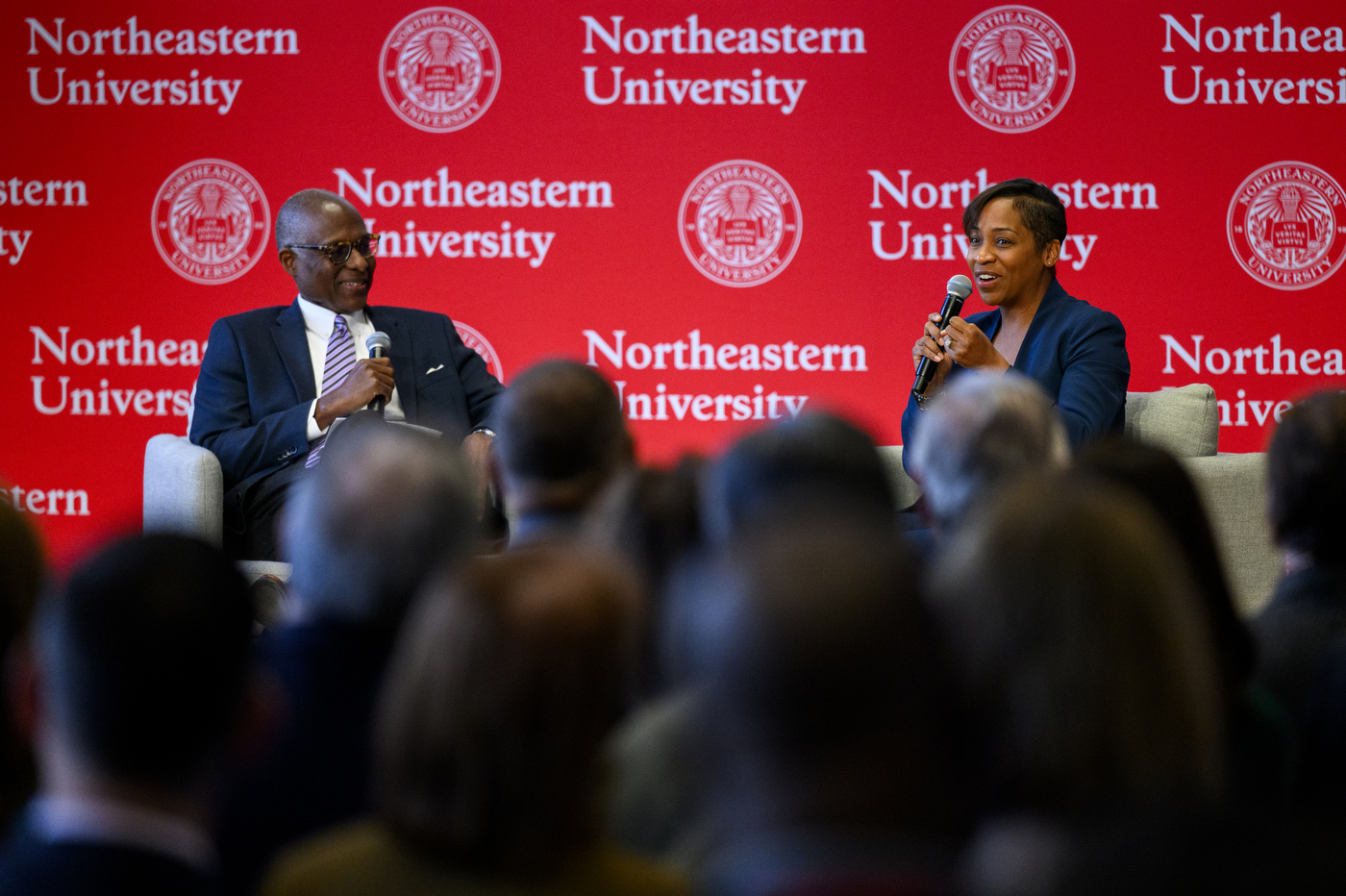
Campbell characterized her upbringing as one of warmth and opportunity. She attended five Boston public schools, including prestigious Boston Latin, before attending Princeton. She noted that community and connectivity helped her there, from the aunt and uncle who raised her to teachers, mentors and patrons of the corner cafe where she studied in the afternoons.
But those achievements came in the shadow of family members consumed by poverty and incarceration within that same community. Her father was in prison until she was 8 years old; her twin brother, Andre, died in a Massachusetts correctional facility.
“The passing of my twin brother made me stop and ask: how do two twins raised in Boston have such different life outcomes?” she recalled. “That was a catalyst for me. My life’s journey is to figure out that question. To break cycles of poverty, criminalization and mediocrity, and do it with a sense of urgency. I have an obligation to do that for every other family across the commonwealth.”
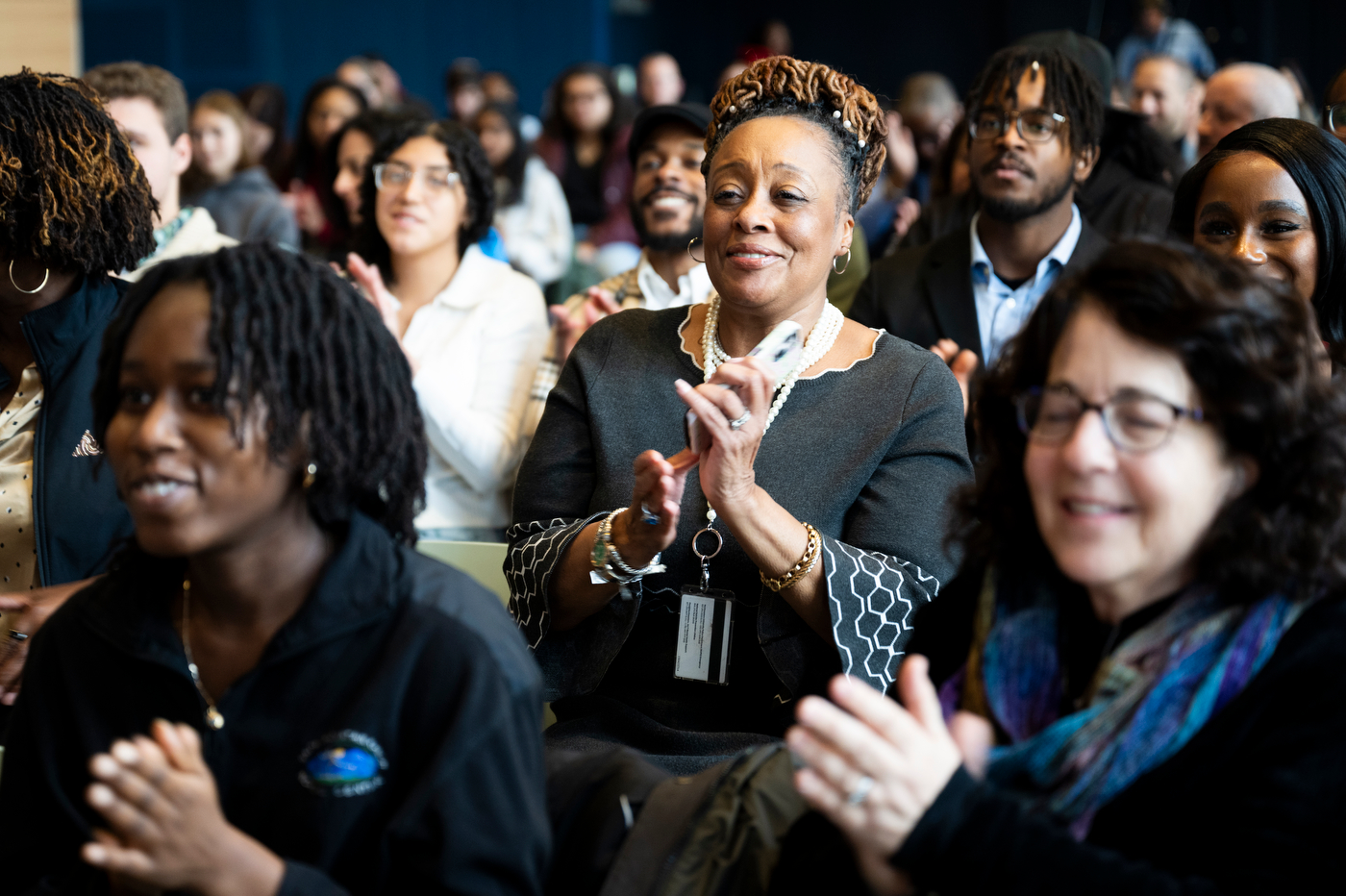
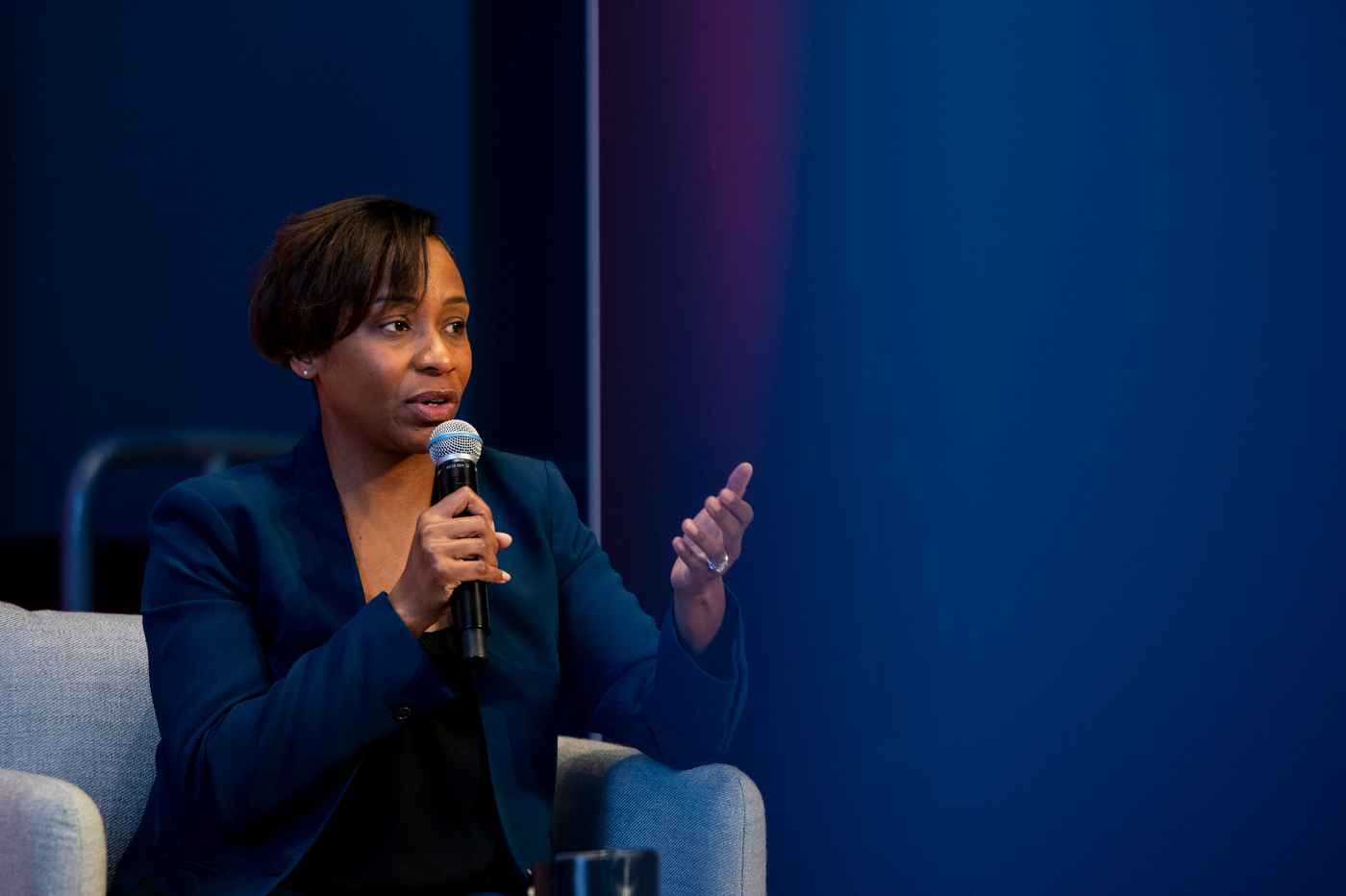
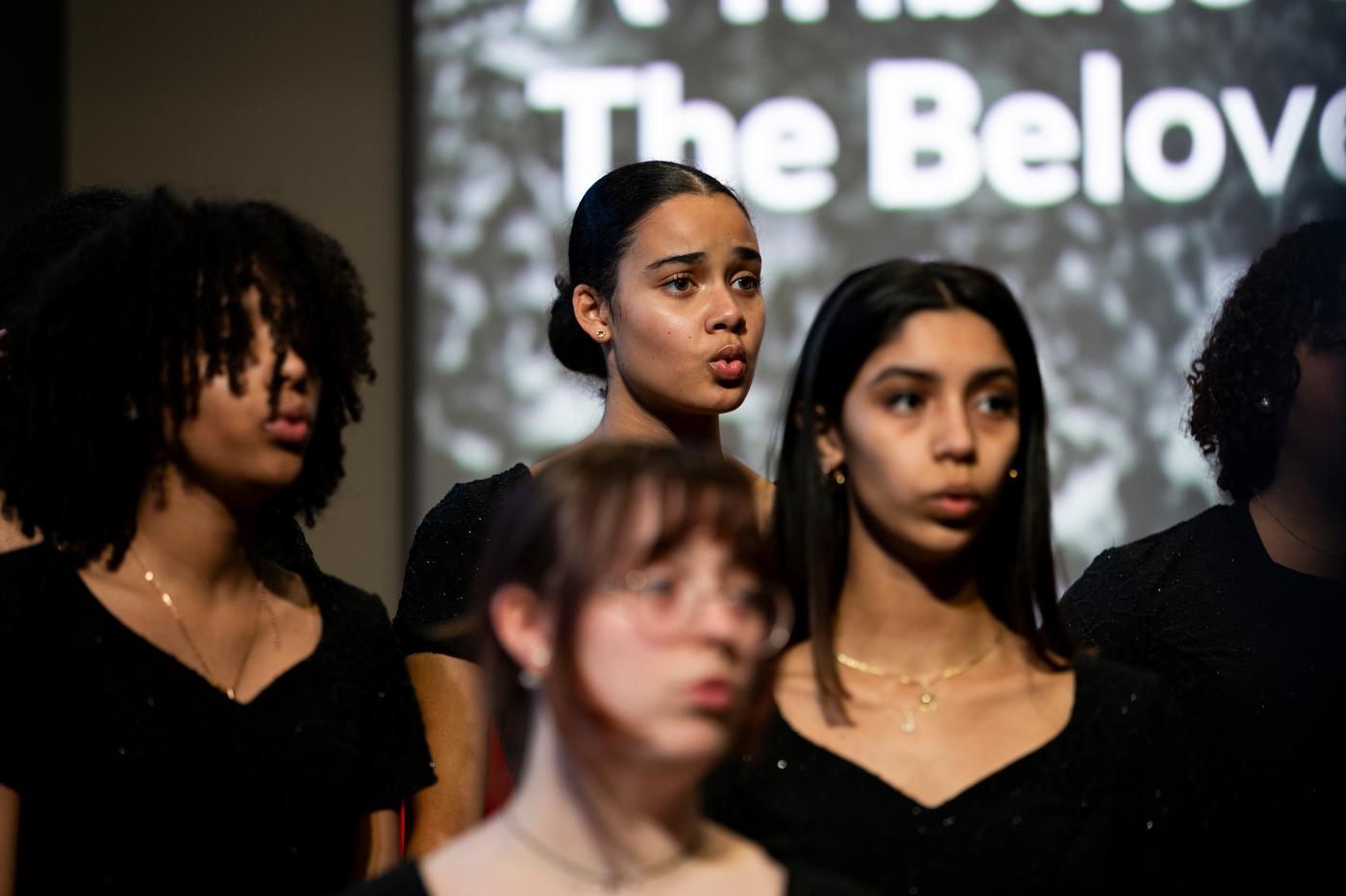
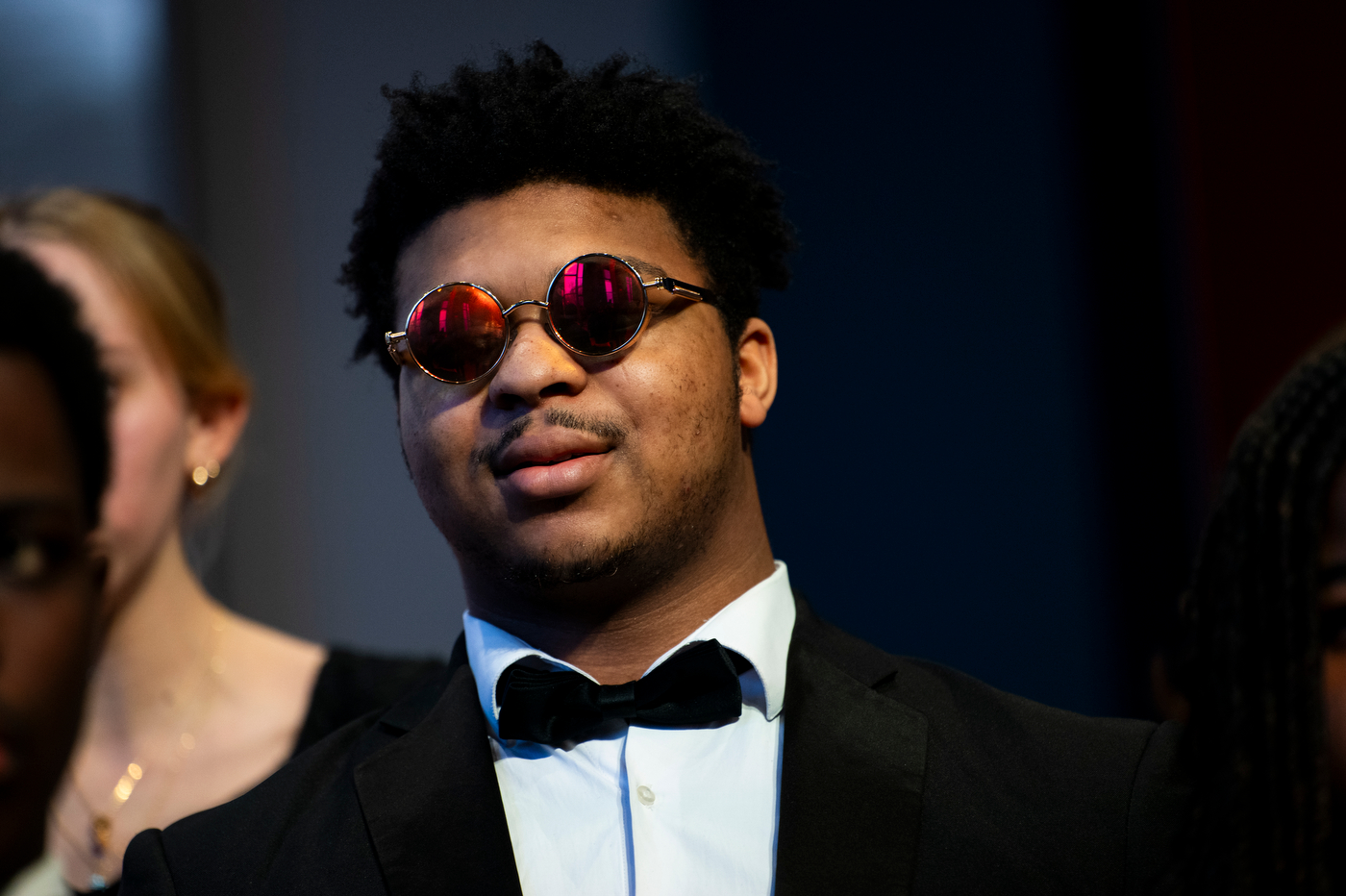
The conversation then turned to the criminal justice and education systems, and the ways they have fallen short. “Stark educational inequities still exist in Massachusetts, especially in rural communities and for Black and brown students,” Campbell said. “Many of the statistics held up on signs during the Civil Rights Movement haven’t changed.”
Campbell then acknowledged that while progress has been made in the wake of the protests surrounding George Floyd’s killing in 2020, there is still work to be done.
“We have made progress, I wouldn’t be sitting here otherwise,” she said. “People fought and died for me to run for office. I would never discount that. At the same time, I am focused on the surface-level response we get from so many. How can we use the tools of the DA’s office to help? And how can we hold folks accountable to do more than surface-level work? Clearly, we have more work to do.”
Still, in the face of those obstacles, she stressed the importance of instilling a sense of joy (which is her middle name) and optimism in inspiring people to take the first step toward making an impact.
That was intrinsic to the work of Dr. King, Campbell said, and was her motivation to run for city council for the first time, challenging a 30-year incumbent.
“I reflected on this idea that you have to see the whole staircase, just take one step,” she said. “When you take it, others will come out of the woodwork to support you. I always remain inspired by that sense of one step — If we all take one step in line with our purpose, can you imagine how the world would be?”
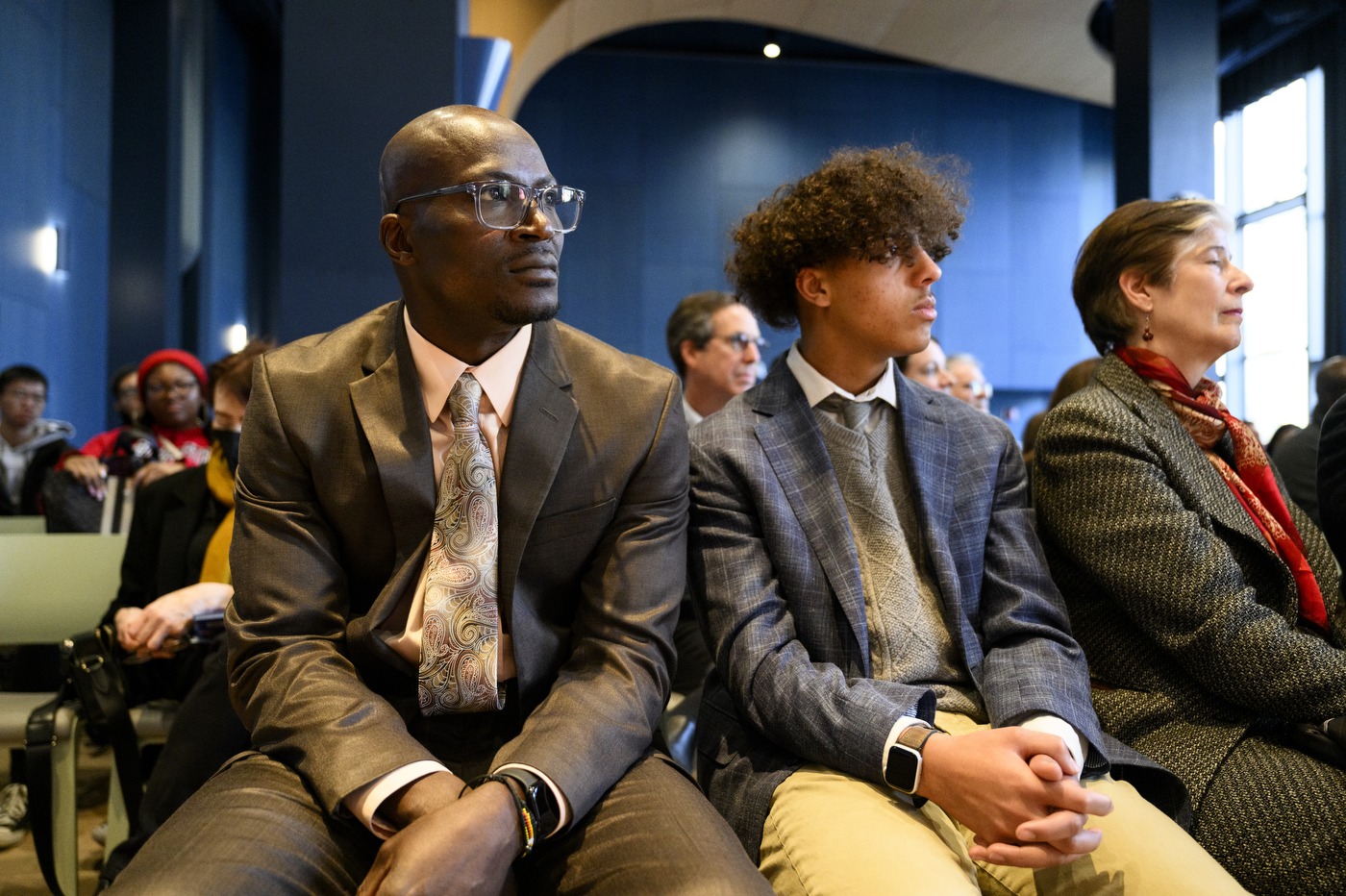
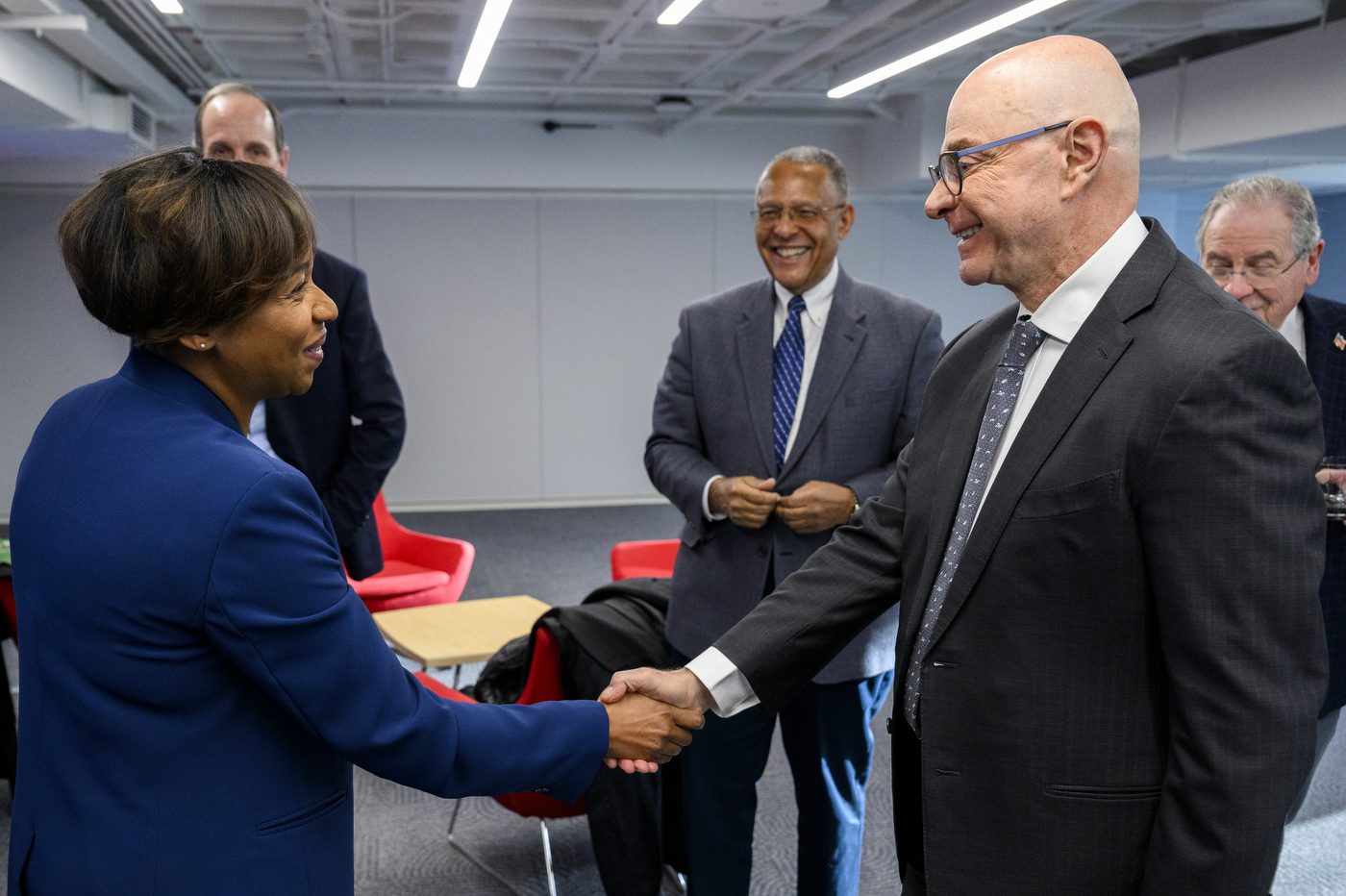
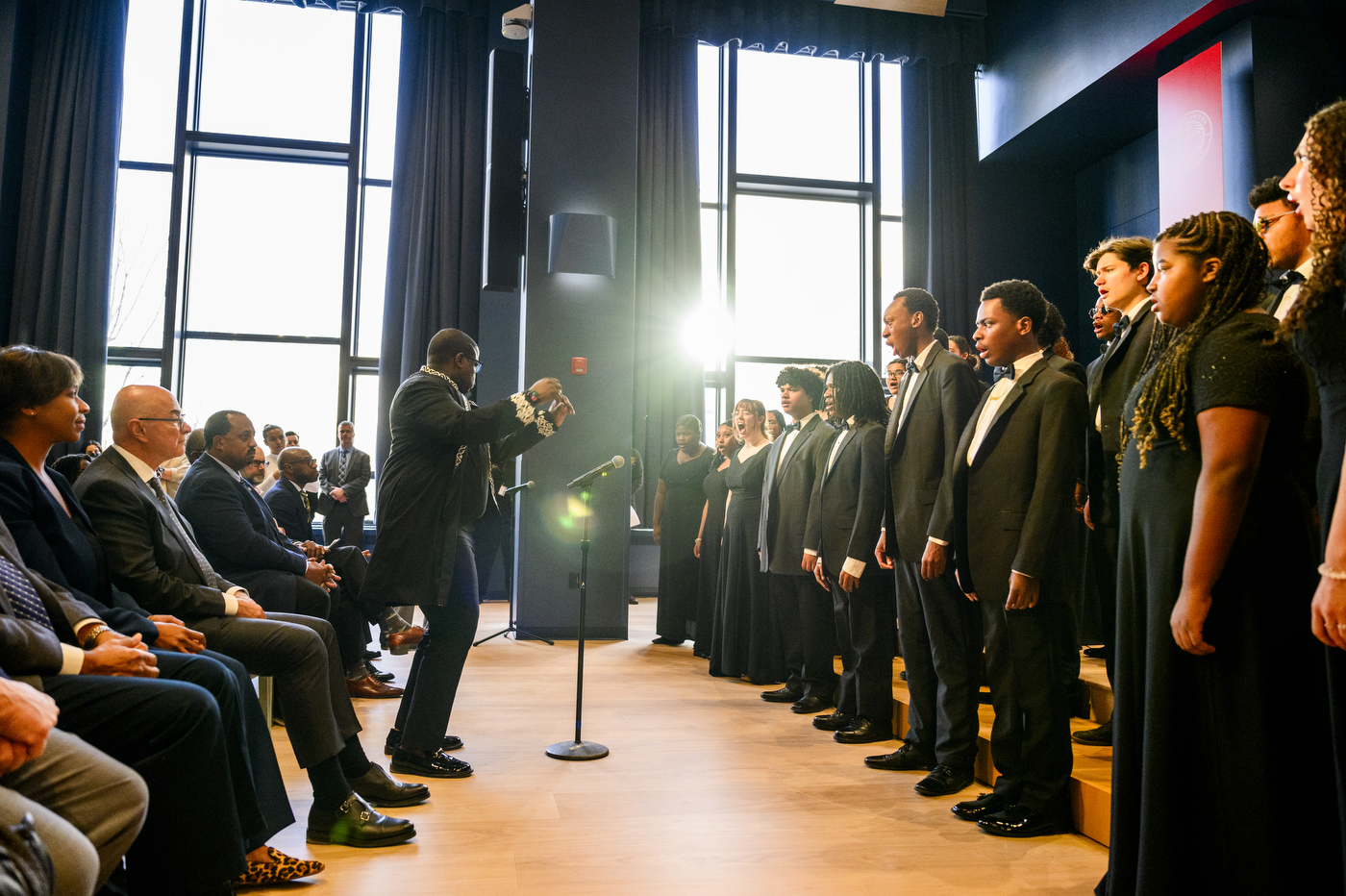
In addition to the conversation with Campbell, “A Tribute to the Dream” featured remarks from Richard D. O’ Bryant, Northeastern’s chief inclusion and belonging officer, and director of the John D. O’Bryant African American Institute.
“Maya Angelu once said, people may forget what you say, people may forget what you do, but people will never forget how you make them feel,” O’ Bryant said. Northeastern, he said, “is committed to increasing inclusion and belonging for students, staff, faculty, and intentionally providing a welcoming environment where everyone can thrive academically, socially and professionally.”
Editor’s Picks
Ernest “EJ” Willingham, a 2024 Northeastern graduate and MLK Scholar at the university, served as host for the event. Raised on the south side of Chicago, Willingham is pursuing a master’s degree in public health at Northeastern and plans to attend medical school upon graduation. The MLK Scholars program, administered by the John D. O’Bryant Institute, covers tuition and fees for six graduate students each year.
“Dr King was not simply sharing a dream. He was boldly declaring a vision for our nation,” Willingham said. He welcomed the audience, prompting them to look around the room. “This is the dream. A global vision of an inclusive society.”
The program began and concluded with performances by the Spiritual Ensemble from the Boston Arts Academy, the city’s only public arts high school. The 28-member audition choir performed rousing renditions of the “There is a Balm in Giliad,” arranged by Raymond Wise, and “Elijah Rock,” by Moses Hogan, a choral pioneer credited with re-popularizing Negro spirituals in American choral music. Earlier in the program, the group performed the spiritual, “The Word is God.”
The choir travels widely and released three albums this year, two of which topped the classical/crossover charts this past summer. The group will make its debut at Carnegie Hall in New York later this spring.
“I could not have them come here and do all this wonderful singing without hearing their story,” said Michael Bradley, the group’s director, ahead of the choir’s thundering finale. “Singing made me who I am today, and it’s what’s opening doors for this amazing group. That is why it’s so important to keep music and arts in our schools. It introduces opportunities for students to experience the world in ways they never could have before.”











